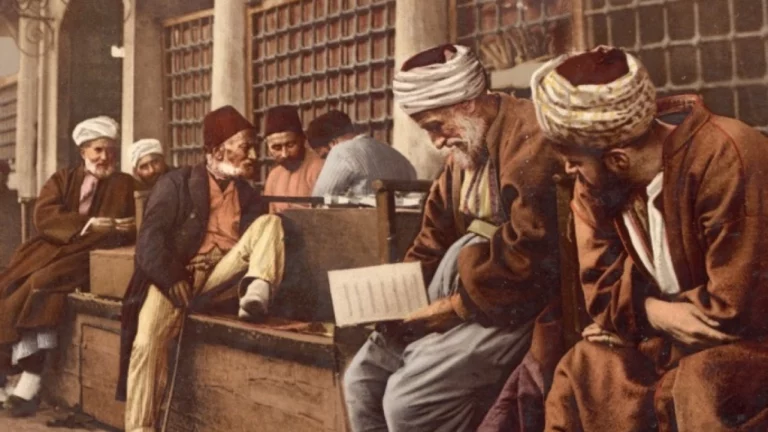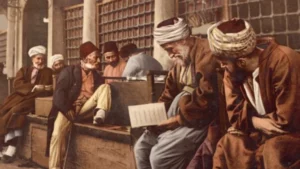By: Taufiqurrahman, Editor of MINA Arabic
Sometimes, stupidity can be a gift to be grateful for, but it is a disaster that must be avoided.
Allah Ta’ala made Islam an easy religion to practice. Allah emphasizes the principle of ease through His various verses. He the Exalted says:
{يُرِيدُ اللَّهُ اليُسرَ لَا العُسرَ}
Also Read: Verses of the Universe in Gaza: The Unyielding Light of Faith
“… Allah desires ease for you, and He does not desire for you difficulty…” (Al Baqarah: 185)
{ومَا لَ لَيكُم الدِّين }
“..and has not placed upon you in the religion any difficulty…” (Al Hajj: 78)
{يُرِيدُ اللَّهُ لِقَ الإِنسَانُ ا}
Also Read: Prophet Sulaiman Alaihi Salam, the Greatest Muslim King of All Time
“God wants to give you relief, and man was created weak” (an-Nisa: 28)
{لَا لِّفُ اللّهُ اً لاَّ ا}
“Allah does not burden a soul beyond that it can bear…” (al-Baqarah: 286)
The five daily prayers are obligatory and forbidden to be abandoned for any reason. However, there is relief (rukhshah) in running it for people who are experiencing certain conditions, such as illness. Allah allows us to do it according to our ability, as long as we don’t leave it.
Also Read: Imaam Yakhsyallah Mansur: Surah At-Tin Indicates the Command to Liberate Al-Aqsa
Another form of convenience is, He will not burden us with a law that we do not know. The Prophet sallallaahu ‘alaihi wa sallam said,
الْقَلَمُ لاَثَةٍ النَّائِمِ وَعَنِ الصَّبِىِّ لِمَ الْمَجْنُونِ لَ
“The pen is lifted (freed) from three groups: [1] the person who sleeps until he wakes up, [2] the child until he has a wet dream (baligh) and [3] the madman until he regains consciousness.” (Narrated by Abu Daud. Shaykh Al Albani said that this hadith is authentic).
Sheikh Ramadhan Al Buthi explained, there are three conditions that must be met until a person is exposed to taklif, namely having knowledge, ability, and freedom to choose or not be forced.
Also Read: Imaam Yakhsyallah: Nurture Love for the Prophet, One Will Be with Whom One Loves
Being able and knowing are two conditions that must be met so that a person is exposed to taklif, burden, and sharia.
Actually, it’s not because we don’t know or can’t, but simply because of Allah’s grace. He created us with all our shortcomings and with His mercy and forgiveness, He does not punish us for all these shortcomings as long as we strive to improve ourselves, continue to learn and repent, asking for His forgiveness.
However, we need to know, there are important provisions so that we are free from the burden of the Shari’a when we are unable or do not know. The stipulation is: is there any effort for us to know and to be able to?
Islam requires a Muslim to seek knowledge because knowledge is the main means so that a Muslim seeks to know what his obligations as a Muslim are. The basis is the hadith of the Prophet sallallaahu ‘alaihi wa sallam from Anas bin Malik radhiyallahu ‘anhu below,
Also Read: Friday Sermon: Emulating the Firmness of the Prophet in Struggle
لَبُ الْعِلْمِ لَى لِّ لِمٍ
“Seeking knowledge is obligatory for every Muslim.” (Narrated by Ibn Majah, no. 224. Al-Hafizh Abu Tahir said that this hadits sanad is dhaif jiddan)
Of course there is a difference between not knowing and not wanting to know. The first, ignorance that is born from tawadhu because of the inability to know everything even though you have worked hard to study. Allah Subhanahu wa Ta’ala says:
لْ لَوْ انَ الْبَحْرُ ادًا لِكَلِمَاتِ لَنَفِدَ الْبَحْرُ لَ لِمَاتُ لَوْ ا لِهِ ا
Also Read: Imaam Yakhsyallah: Muslims Unity as Key to Victory of Islam
“Say, “If the sea were ink for [writing] the words of my Lord, the sea would be exhausted before the words of my Lord were exhausted, even if We brought the like of it as a supplement.” (al-Kahf: 109).
The second is ignorance born of pride. He refused to know because he felt he did not need to know. Therefore, it is very different between those who have knowledge and those who are not.
هُوَ قَٰنِتٌ انَآءَ لَّيْلِ اجِدًا ا ٱلْءَاخِرَةَ ا۟ رَبِّهِۦ ۗ لْ لْ لَّذِينَ لَمُونَ لَّذِينَ لَا لَمُونَ إِنَّمَا لُوا۟ لْأَلْبَٰبِ
“Is one who is devoutly obedient during periods of the night, prostrating and standing [in prayer], fearing the Hereafter and hoping for the mercy of his Lord, [like one who does not]? Say, “Are those who know equal to those who do not know?” Only they will remember [who are] people of understanding.” (Az Zumar: 9)
Also Read: Friday Sermon: Prophet Muhammad Is Not a Political Figure
Allah characterizes people who seek knowledge as intelligent people and characterizes stupid people as people who have no sense. Those who are intelligent can receive lessons and those who are not intelligent are reluctant to learn and accept lessons.
Sometimes, the ignorance that exists in us can be a blessing to be grateful for, sometimes it can be a disaster that must be avoided. Ignorance becomes a blessing to be grateful for when we realize it is a mercy from Allah Ta’ala and we are grateful by continuing to learn to reduce stupidity. However, stupidity becomes a disaster when we enjoy stupidity by lazily studying. (T/ri/RE1)
Mi’raj News Agency (MINA)
Also Read: Without Knowledge, Congregation Is Merely a Crowd Without Direction































 Mina Indonesia
Mina Indonesia Mina Arabic
Mina Arabic